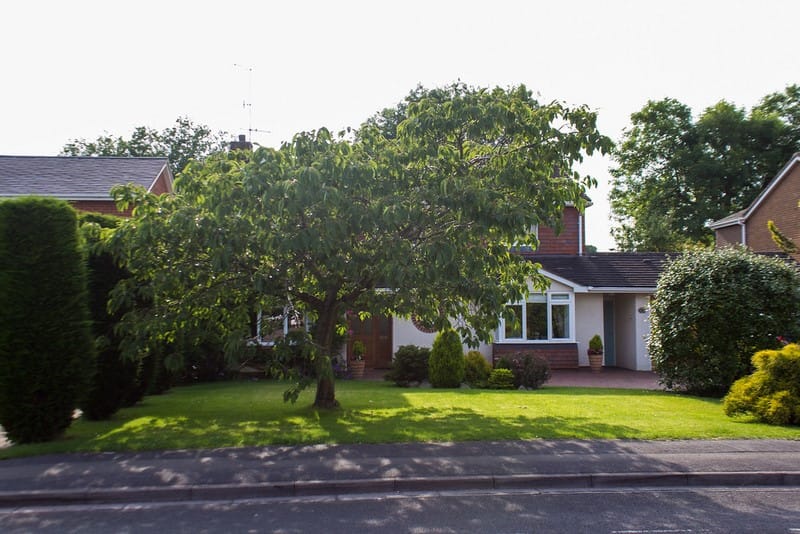
Many homeowners are curious about their property’s current value, whether they’re thinking of selling or remortgaging, or checking whether some recent improvements have increased its price. For these reasons, it’s useful to be able to value your own property. However, you need to be aware of the pitfalls which can lead you to misvalue your property. Read on for some tips on avoiding these.
Checking Similar Properties – Easy Right?
At first sight, valuing your property by checking what similar properties are going for, looks like a pretty simple proposition. There’s masses of online price information, from Rightmove, to Zoopla, to a hundred other sites. In fact, many guides to valuing your own property, start with a breezy instruction to find out what similar properties have sold for. That’s easy right?

Not as easy as you might think.
Online property selling sites, such as Rightmove and Zoopla, show asking prices. And if you’ve ever bought or sold a property, you’ll know there can be a world of difference between the asking price, and what the property eventually sells for.
Initial valuations can be wildly optimistic. When agents provide a price range to a client, many will opt immediately for trying the highest price, at least for a period. This is particularly true if people aren’t in a hurry to move, or feel that the market is rising, and that they’ll therefore need to get the best price to get onto the next rung of the ladder. After a few lower offers, or a low number of viewings, the seller reduces the price.
These price reductions are reflected in the online sites, which will even email registered users with details of lower prices. However, whether a property was reduced, or sold at its initial asking price, is not an accurate indication of whether it sold at all. The mortgage company may not have wanted to lend on it, or the buyer’s surveyor might have discovered a major structural problem. Or searches may reveal plans for a huge housing estate on that nice field down the road.
If the property was withdrawn or didn’t eventually sell, its initial asking price – or even “under offer” price – won’t reflect this.
Online Data Is Historic Data, So View with Caution
So, if property currently for sale isn’t always a reliable guide, what about data from actual transactions?
Well, there’s a problem here too.
We all know how long it takes to buy and sell a property and reach completion. Three months is warp speed as far as conveyancing, surveys and mortgage offers are concerned. Six or even nine months are common.
Essentially, online sales transaction data is out of date. Now, if property prices were static, this wouldn’t matter. But we all know that there’s a buying and moving season, that starts in early Spring, and gradually declines after September, when people start thinking about Christmas. During this busy period, prices can move dramatically, up or down. This volatility tends to be smoothed out by the annual or quarterly house price figures released by big lenders like Halifax, but it can be very marked at the time of peak property transactions. This makes sold prices, that may relate to the period ending the previous January or February, not such a brilliant guide to the peak buying and selling season.
The London Market Is Completely Different
What works for the rest of the country isn’t necessarily going to work in London, because the London property market is unique in the UK. Recently, we’ve seen London property in the doldrums – stagnant or declining slightly. But most people who bought in the last few years, or are veterans of buying and selling in London, know that this is unlikely to continue.
And when it ends, it may end with a bang. Property prices may start rising very rapidly – again, if you look at the “sold” property sites, it will look as though current asking prices are too high, compared to the transaction data. This is actually an effect of the online data lagging a market which has started to move very quickly. The same applies in reverse – in a falling market, online “sold” prices may mislead by providing over-comfortable valuations.
Estate agents can value properties accurately because they’re testing the market the whole time, by advertising homes for sales. They know what’s going on in their area, what the future plans are, and whether for example, extended congestion charging, or improved transport is going to make a difference to the area’s desirability. They crunch all the data they can, and also look carefully at current asking prices, with the caveats outlined above. And they talk to everyone. All the time.
Tips for Valuing Your Own Property
So now we’ve looked at the pitfalls, let’s look at what you can do to get a realistic idea of your property’s value.
- Check online asking prices for similar properties, but look closely at the kitchens, bathrooms, outside space and decor. Be honest – is your property as good as the one you’re looking at?
- Look at historic transaction data, especially for your street, from the Land Registry, Zoopla, Hometrack and other sources.
- Read your local newspaper. Know what’s happening locally that could affect the valuation. Any surveyor from your buyer’s mortgage company will have this information, so make sure you have it too.
- Be cheeky – ask someone who’s selling a similar property to yours, how the market is, what kind of people have been looking, and how many people have been to see it. This information is gold dust.
- Use online valuation tools, such as those by Property Price Advice and Yopa, to get an idea of how much your home might be worth. The technologies powering these automatic valuation models have come on leaps and bounds over the past few years.
- And finally, you could always ask your local estate agent. As their living depends on getting this stuff right, you may find they’ve done the hard work for you.
This is a Sponsored Feature.


